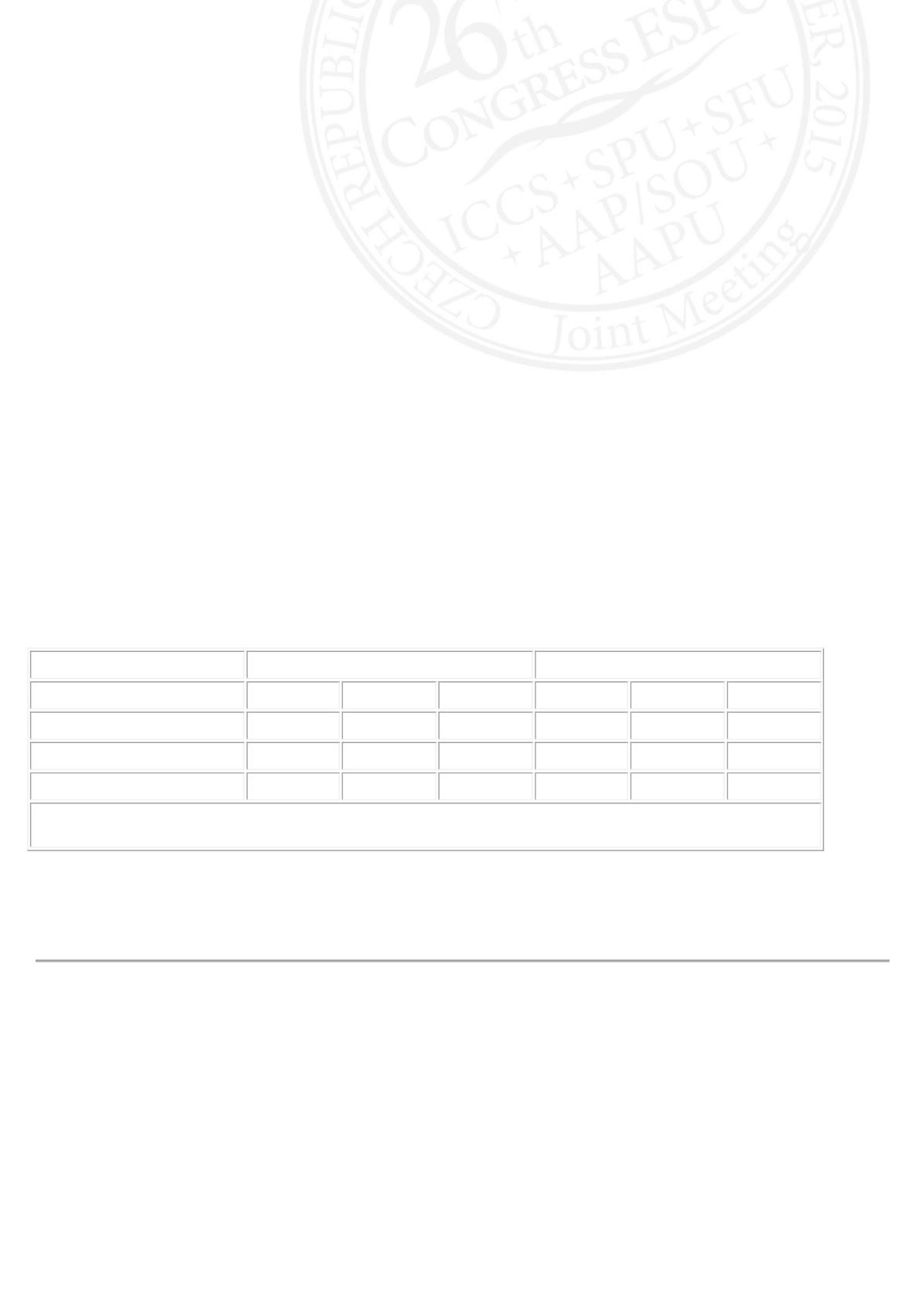

11:07 - 11:10
S24-3
(PP)
HIGH SHORT-TERM EFFECTIVENESS OF MODULATED DRY BED TRAINING IN
ADOLESCENTS AND YOUNG ADULTS WITH TREATMENT-RESISTANT ENURESIS
Ilse HOFMEESTER
1
, J. (hanny) G.L. COBUSSEN-BOEKHORST
2
, Barbara B.M. KORTMANN
3
, Zwaan MULDER
4
, Martijn G.
STEFFENS
1
, Wouter F.J. FEITZ
3
, Jan Willem VAN CAPELLE
1
and Marco H. BLANKER
5
1) Isala, Department of Urology, Zwolle, NETHERLANDS - 2) Pediatric Urology Center, RadboudUMC, Amalia Children's
Hospital, Radboud University Medical Center, Department of Urology, Nijmegen, NETHERLANDS - 3) Pediatric Urology
Center, RadboudUMC, Amalia Children's Hospital, Radboud University Medical Center, Pediatric Urology, Nijmegen,
NETHERLANDS - 4) Noorderboog, Dry Bed Center, Meppel, NETHERLANDS - 5) University of Groningen, University
Medical Centre Groningen, Department of General Practice, Groningen, NETHERLANDS
PURPOSE
Enuresis has a considerable impact on quality of life. Two percent of the adult population suffers from enuresis. The
effect of a Modulated Dry Bed Training (MDBT) in a previously therapy-resistant group of adolescents and adults with
enuresis, provided by a specialized enuresis-centre, was evaluated.
MATERIAL AND METHODS
Descriptive, retrospective cohort study. Between January 2003 and July 2013, 907 patients were treated by MDBT: a 5-
days/4-nights in-hospital training in small groups consisting of enuresis-anamnesis, explanation, alarm treatment and
day-time activities with the purpose of increasing self-esteem. A database was filled with patient data, derived from
medical files. Success of treatment was determined using ICCS-definitions, at 6 weeks and 6 months. Sensitivity
analyses were performed to control for missing values.
RESULTS
Patients were aged 11–42 years (median 15, IQR 3.5), 34% female. At baseline, 65% had primary, 81% non-
monosymptomatic, and 46% frequent enuresis (≥4 days/week). Outcome and sensitivity analysis are shown in the
table.
6 weeks, % (n)
6 months, % (n)
Response category (ICCS)
No
Partial
Full
No
Partial
Full
Worst case scenario*
42 (381)
27 (249)
31 (277)
42 (378)
16 (141)
43 (388)
Available data
13 (76)
41 (249)
46 (277)
7 (39)
25 (141)
68 (388)
Best case scenario*
8 (76)
27 (249)
64 (582)
4 (39)
16 (141)
80 (727)
Table. Treatment results after 6 weeks, 3 and 6 months, including sensitivity analysis
* Assumption worst-case/best-case scenario: patients with missing values had no response/full response
CONCLUSIONS
In therapy resistant adolescents and adults with enuresis, MDBT had a good short term effect.












